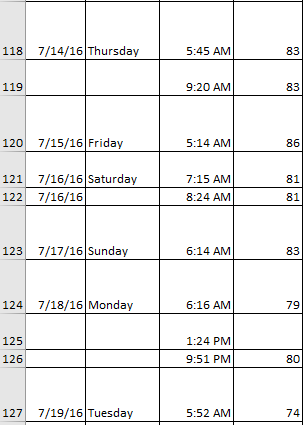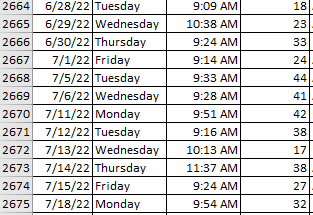I would highly recommend keeping it up, especially with breath ketones, as then there’s only one cost – the device. The issue will be interpretation, as breath ketones are not blood ketones (though I have seen some data where these track very well).
The other issue is testing. Say you think that eating higher fat causes higher ketones or exercising reduces ketones. This is where I had a hard time (back when my ketones were high enough to measure this). I would THINK I had a pattern, then my pattern would break. The first break, you might think that’s an anomaly. The second, that’s a tough one. The third, it’s no longer an anomaly.
What I found was the the testing devices we have aren’t great. Pin prick glucose meters are considered to be “accurate” if they are within 15 % of the real value. Well, if they were always 15% high, that might not be bad. But I could take samples from two different fingers and get two different results. Not great.
I found something similar for ketones, as I have a picture with three ketone meters reading 0.2, 0.4, and 0.8 mmol/l. That’s tough, as it’s the type of error that means any test result might be meaningless.
I hope you test and get a pattern that’s repeatable. Just because I didn’t for many things, this doesn’t mean you won’t.
If you do some testing:
- How long does it take you to get back into ketosis from a high carb event (say, birthday party with ice cream cake, vacation)?
- Can you stay in ketosis even doing something like eating ice cream for a birthday, but only eating ice cream (or consider something else where you have a high carb load, but only for a short time)
- If you get high ketones, do you notice any benefits to high ketones as compared to low? (I can’t really test this, because I need to fast 4+ days to get ketones near 2.0, and fasting that long causes stuff not associated with ketones.)
Anyway, there are definitely tests that could be interesting to have results from.





